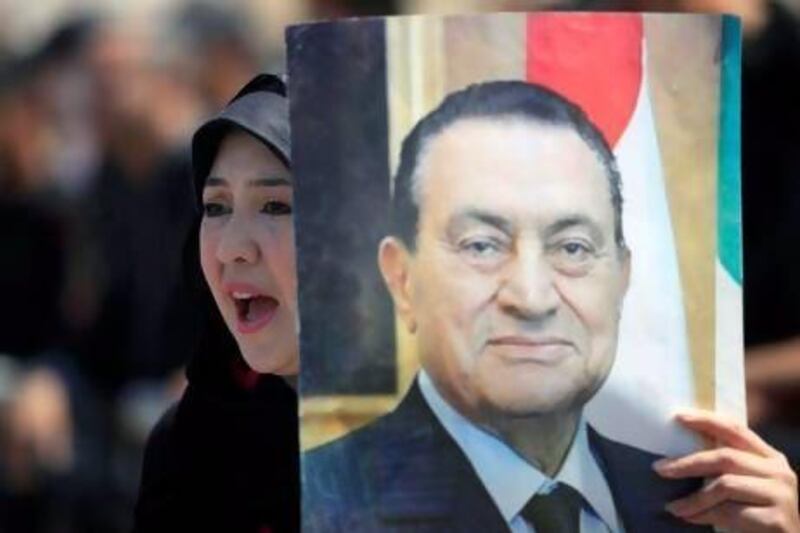CAIRO // The retrial of Hosni Mubarak for the deaths of hundreds of Egyptians during the 2011 uprising was postponed yesterday until next month.
Mahmoud Kamel El Rashidi, the judge overseeing the trial, said he needed the time to review some 55,000 documents related to the case. The trial will resume on June 8.
Former president Mubarak is the only leader deposed during the Arab Spring to appear in a court in his own country, but the challenges of prosecuting him have underscored the persistent fog surrounding the events that led to his departure. No clear evidence has emerged that he ordered the use of deadly force against protesters or was fully aware of the extent of violence on the streets.
Many Egyptians believe that Mubarak will not be properly held to account for alleged crimes against the country. Last June, Mubarak and Habib El Adly, the former minister of interior, were sentenced to life in prison for not using their powers to stop the bloodshed in the streets during the 18 days of protests in 2011, but a court overturned the conviction in January and ordered a retrial because of what it described as procedural errors in the original trial.
The first hearing of the retrial took place on April 13 but ended after just 20 minutes when judge Mostafa Hassan Abdulla recused himself from the case because of an unspecified "conflict of interest".
Mubarak, his two sons, Alaa and Gamal, the businessman Hussein Salem, El Adly and six other security officials have denied all the charges levelled against them by the public prosecutor.
Mubarak, Mr Salem and his sons are accused of corruption, while Mubarak, Mr El Adly and the six security officials are accused of having a role in the killing of protesters during the 2011 uprising.
Mr El Rashidi, the new head of a three-judge panel overseeing the case, yesterday heard legal requests from lawyers involved with the case. Representatives of the families of victims complained that they faced difficulties in gaining access to the courts.
Mubarak's lawyer, Farid El Deeb, also rejected the support of a volunteer team of Kuwaiti lawyers in the case.
bhope@thenational.ae





